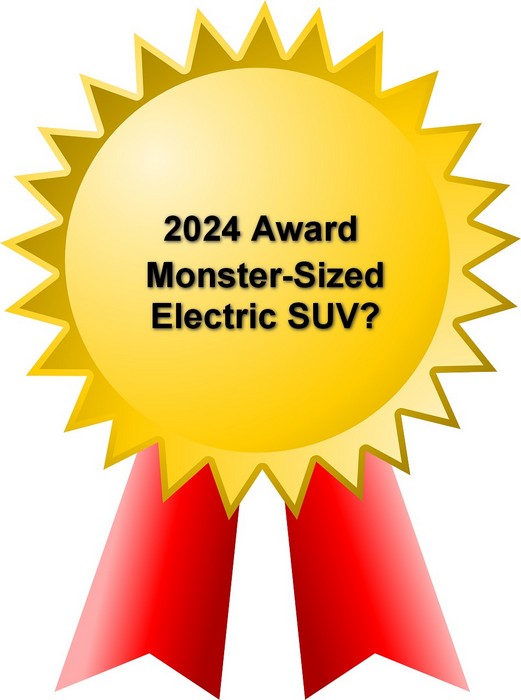
So, despite eating your own weight in turkey and Pringles, you’ve somehow made it into 2024. Well done, that’s the first hurdle out of the way! What does the rest of 2024 have in store?
We were researching that very question when we came across this story in The Telegraph:
‘Electric SUVs dominate Car of the Year shortlist.’
It turns out that five of the seven cars shortlisted for the 2024 Car of the Year are electric SUVs ( or, more accurately, have electric options).
As we’ve we’ve recently blogged about SUVs vs estate cars, this seems like a good moment to reflect on that headline and what might lie behind it.
What is the Car of the Year award?
Unsurprisingly, there ‘s more than one COTY award, but the specific award we (and The Telegraph) are referring to is the one that UK readers know best – the award associated with leading automotive publications such as Autocar, Auto and Autotrends. It’s selected by a jury of 59 top-flight motoring journalists, representing 22 countries.
According to The Car of The Year website:
The object of Car of the Year is to find a single, decisive winner. The voting process is designed for that purpose, and not to provide a scale of merit of all competing cars. There are no categories, sub-divisions or class winners.
Obviously this requires the Jury to assess cars of very different types and price, which means assessing them against their market rivals. The 61 members* of the Car of the Year Jury all test cars as part of their journalistic work. In selecting the car of the year they use the following criteria: design, comfort, safety, economy, handling, performance, functionality, environmental requirements, driver satisfaction, and price.
Technical innovation and value for money are particularly important factors.
* It looks like this was written for 2022 and hasn’t been updated.
What cars made the shortlist this year?
The nominees for 2024 Car of the Year
Here are the seven nominees, with the prices taken from the Telegraph article. The SUVs are in italics.
- BMW 5 series. From £51,000
- BYD Seal. From £45,695
- Kia EV9. From £64,995
- Peugeot 3008. From £32,830
- Renault Scenic. From £40,000
- Toyota C-HR. From £31,290
- Volvo EX30. From £33,795
What is missing from this picture?
You’ll see that the cheapest new car in the list is the Toyota C-HR, which starts from £31,290. Just take that in for a second. Not one of the most innovative designs available this year retails for under £30K… and remember that value for money is one of the judging criteria.
Size-wise, they may not be the most morbidly lardy offerings on the road today, but neither are these cars small. The Renault Scenic weighs in at 1730 kg to 1850 kg, depending on battery size. The seven-seater Kia is a road-crushing 2312 kg to 2636 kg. For comparison, a seven-seater 1990s VW Sharan tipped the scales at about 1400kg.
Why didn’t one single cheap, smallish car make the list?
For an easy game of spot-the-difference, here’s the 2010 COTY shortlist:
- Volkswagen Polo
- Toyota iQ
- Opel/Vauxhall Astra
- Skoda Yeti
- Mercedes-Benz E-class
- Peugeot 3008
- Citroen C3 Picasso
Don’t blame the jury
What’s behind this shift in the Car of the Year awards? As we head into 2024, there are plenty of nice, cheaper cars around. For example, the Skoda Scala looks pretty good, got rave reviews and starts at £23K. There are even some cheaper electric cars, such as the Fiat 500E (£23K) and BYD Dolphin (£25K). And OK, maybe those particular models weren’t launched or updated in 2024, but the point is that there must surely be some cheaper, smaller contenders.
Is it because motoring journos have fallen out of touch with what ‘value for money’ means for an ordinary car-buyer? Or could they be putting eco-credentials ahead of everything else?
Well possibly, but we think it’s much more likely that the awards reflect 2024 trends in the motoring industry. After all, the jury is obliged to choose from the very best new offerings from car makers… and the very best of manufacturer expertise and innovation is not being put into their cheaper, smaller cars.
In 2024, companies don’t want to make cheap, small cars
This shift probably all comes down to costs and consumer trends:
- Tom Barnard suggests that one factor is the rise of leasing deals, which mean that more expensive cars don’t cost much more per month than cheaper ones.
- Sean Carlson at Autocar points out that it’s become uneconomic for companies to make small cars: the burden of electrification, increased safety standards and the demand for what he terms ‘big-car’ features mean that manufacturers are pouring their efforts into profitable higher-end models.
Maybe in the scheme of things, it doesn’t matter if we all drive cars the size of a battleship… but wouldn’t it be a shame if the nimble little hatchback died out? One thing is for certain: only consumer pressure can reverse the trend.
SUV, estate, saloon or hatchback… we’re here for you
Whatever you drive, if you’re in the South Wales area, pop on over to see us for your services, repairs and MOTs. We are an independent garage specialising in the VW group marques, including Audi, Volkswagen, Skoda and SEAT. WVS provides a main dealer level of care at affordable prices. To book your vehicle in, or for any enquiries, get in touch.
The WVS blog covers a wide range of automotive topics, from the contentious to the light-hearted.
